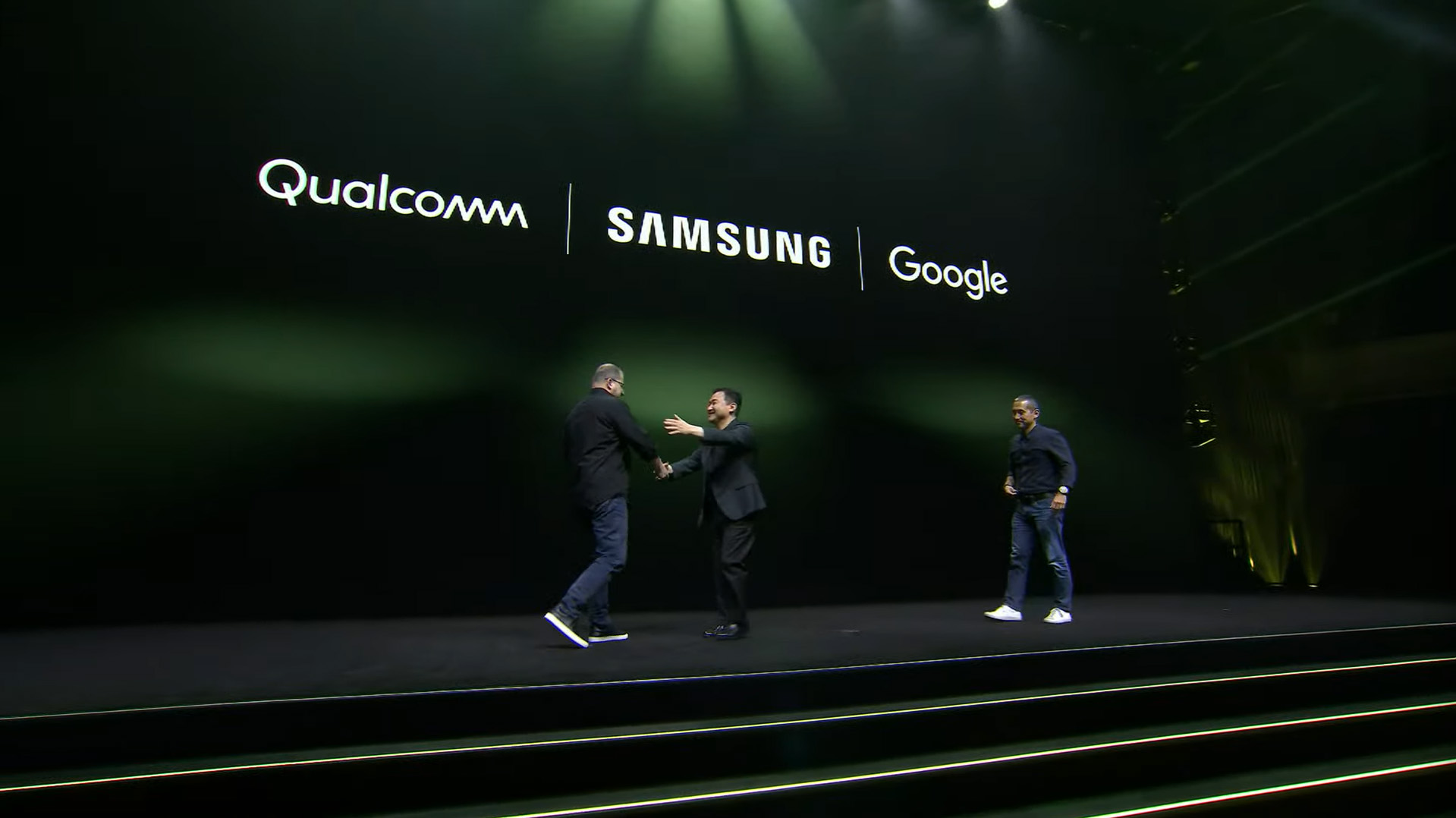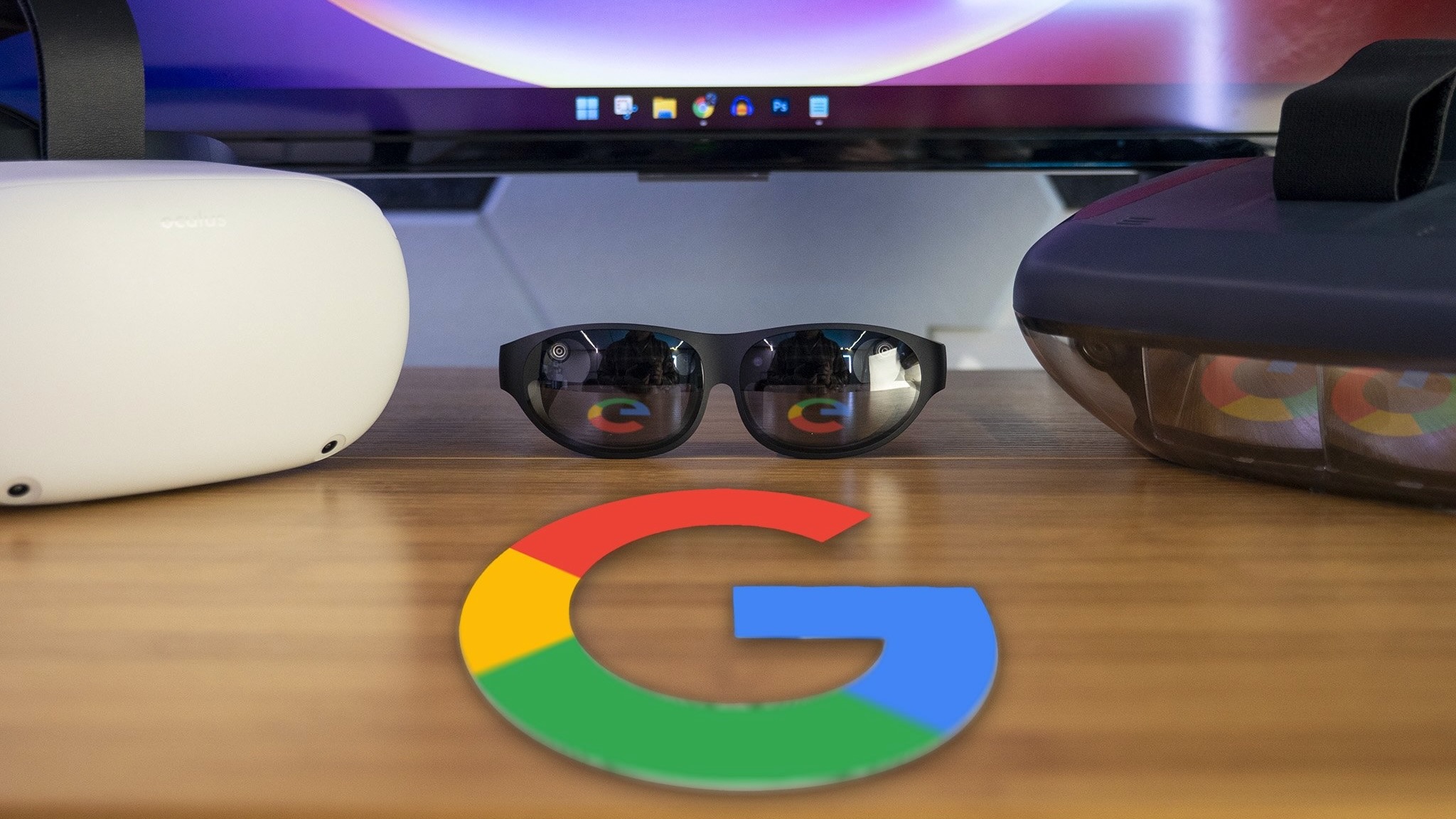
What you need to know
- Google is "building a new immersive XR platform powered by Android" while working "together with Samsung."
- Samsung and Google haven't released new VR or AR devices in several years, since devices like Google Daydream, Google Glass, and Samsung Gear VR went defunct.
- At Google I/O, the company explained its plans for expanding Android to new devices, sharing how many phones, cars, watches, and other devices use the OS.
Back in February during Galaxy Unpacked 2023, Samsung's president of MX, TM Roh, invited Google SVP Hiroshi Lockheimer and Qualcomm CEO Cristiano Amon on stage to talk about an upcoming Samsung XR headset running on Snapdragon hardware and Android software.
Any old fans of the Samsung Gear VR headset had to find this a little exciting. But this dynamic trio gave us so little information about what to expect from it, and then the companies went radio silent. Most of you probably forgot this device even existed, let alone that it would arrive in 2023!
So in the midst of all the hardware announcements at Google I/O 2023, Google reminded everyone that it's an Android software company, first and foremost — and that VR is the company's next frontier.
"Together with Samsung, we’re building a new immersive XR platform powered by Android. We’ll share more later this year," Sameer Samat, Google's VP of Android Ecosystem, announced during I/O.
Google also talks about the growth of Android beyond phones. According to Google, there are "more than 3 billion active devices" running Android today, with major growth in non-mobile categories.
The Android TV operating system is "the #1 streaming platform worldwide." Android Auto has come to 200 million cars. 1 billion people will actively use RCS by year's end. And Wear OS is apparently the "fastest-growing smartwatch platform in the world," with 5X more users since the Wear OS 3 launch in mid-2021.
That last stat can likely be attributed to the popularity of the Samsung Galaxy Watch 5 and Galaxy Watch 4, more than Google's own Pixel Watch. It piggybacked off of Samsung's popularity to give its software a larger market share.
In the same way, Google's XR partnership with Samsung will help Android make inroads in the virtual space — whether or not rumored Google MR hardware actually ships to consumers.

Although the Quest 2 actually runs on Android 12 after its latest update, it's a modified version of the OS that Google has little to do with. No doubt the same will apply to the upcoming Quest 3.
This Samsung & Google-partnered device will be more likely to have some version of Play Store apps, Nearby Share, Casting, and other native tools baked into the operating system, not to mention Google Workspace apps for productivity and YouTube for VR films.
Google also invested $12 million in SideQuest, a popular third-party app platform for playing indie VR games on the Quest Store. It could easily use SideQuest as the template for its new VR gaming store on Samsung's headset.
The real question will be what kind of headset Samsung is making. Is it more of a prosumer mixed-reality headset like the Quest Pro or the upcoming Apple MR headset? Or will it focus instead on more budget-minded consumers? We're not even sure yet whether it'll use VR, AR, or MR tech.
Regardless, it's clear that Google and Samsung are planning an epic comeback into the VR space.







